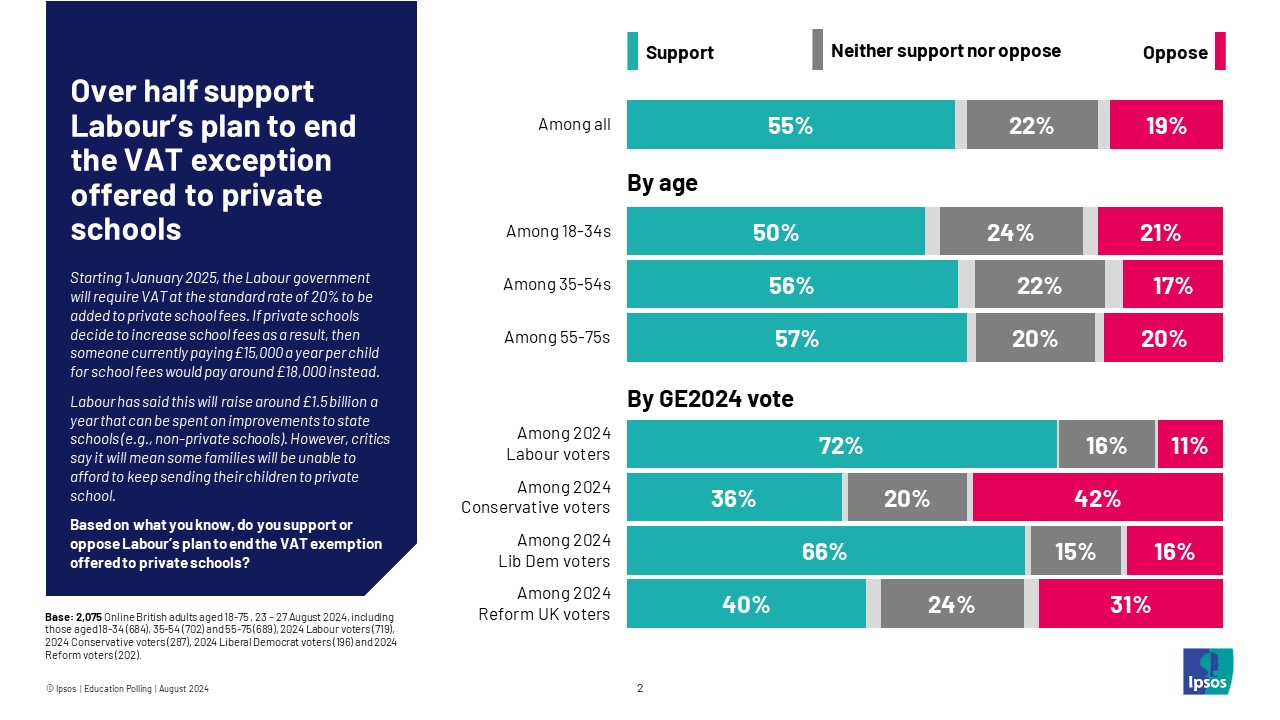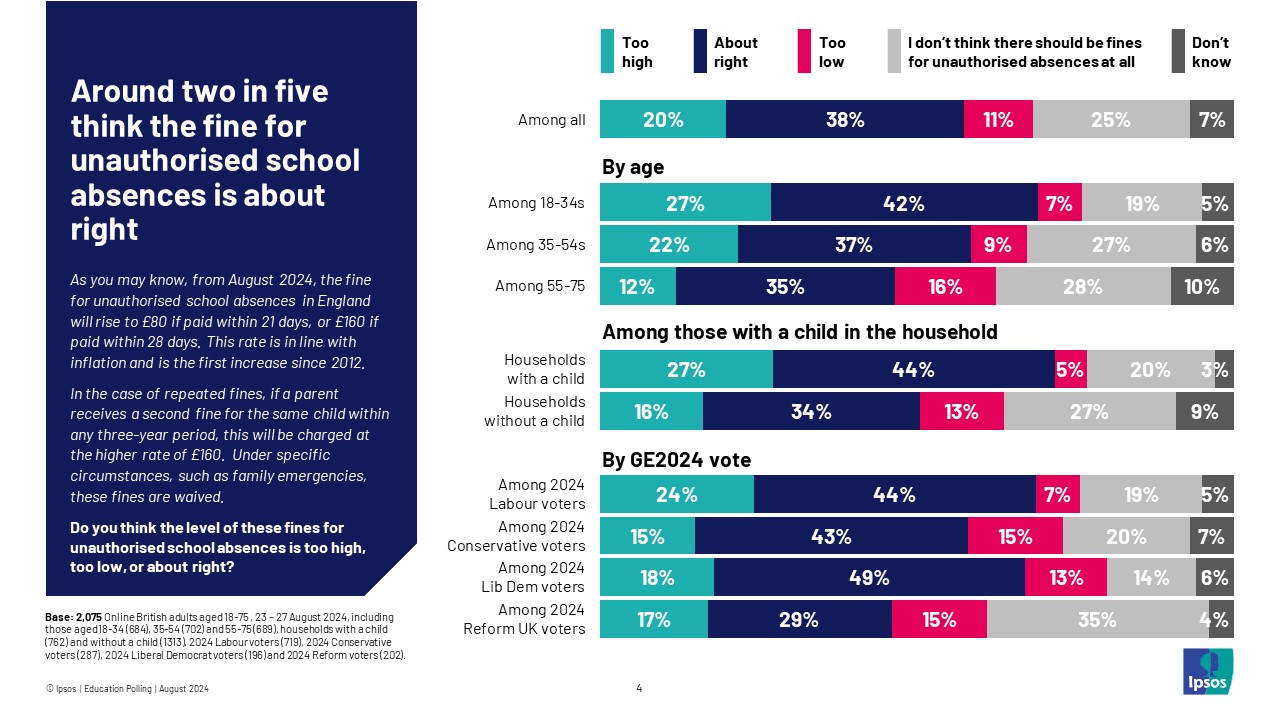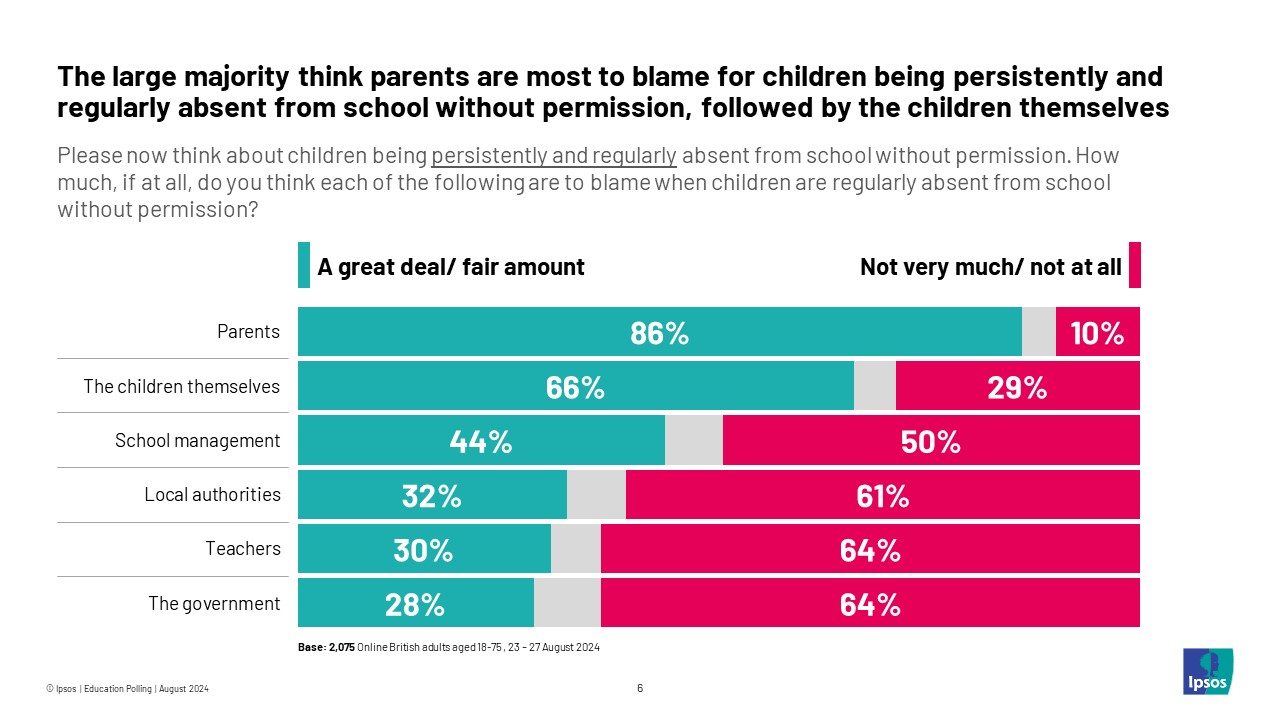Over half of Britons support Labour’s plans to end VAT exemptions for private schools
- 55% support Labour’s plans to add VAT to private school fees
- 6 in 10 (60%) think it is acceptable for parents to take their children out of school without permission for a day to go to a family wedding
- 53% think a one day absence is acceptable to go on holiday – but are more divided on going on holiday for a week
- Large majority think parents are most to blame for unexcused absences
New polling by Ipsos, taken August 23-27 in partnership with the Telegraph, examines attitudes towards Labour’s plans to introduce VAT on private school fees, and towards truancy.
Over half (55%) of Britons support Labour’s plan to end the current VAT exceptions offered to private schools (19% opposed, 22% don’t know). This includes 72% of those who voted Labour on July 4th, and 66% of Liberal Democrat voters. Conservative voters and Reform UK voters are less supportive of the policy, with 36% and 40% respectively approving of the measure.

On the issue of absence from school, 6 in 10 (60%) believe that it is acceptable for parents to take their children out of school without permission for a day to go to a family wedding (26% unacceptable, 12% neither acceptable nor unacceptable). Just over half (53%) believe it is acceptable to take their children out of school without permission for one day to go on holiday (32% unacceptable, 13% neither acceptable nor unacceptable). However, opinions are more mixed on longer holidays, with 4 in 10 (40%) saying it is acceptable to take their children out of school for a weeklong holiday, and 46% saying it is unacceptable (12% neither acceptable nor acceptable).
Around half of parents surveyed have not taken their children out of school without permission to go on holiday or to a family wedding, with 51% saying they have not done it in the past academic year and 46% saying they have never done it. Only 2 in 10 (20%) say they have ever taken their children out of school without permission for more than one day.
Around two in five (38%) think the current level of fines for unauthorised school absences is about right, rising to 44% among those with a child in the household. 27% of those with a child in the household believe the fines are too high, and just 5% believe they are too low.

When asked who is most to blame for unauthorised absences, the overwhelming majority (86%) say parents. This is followed by the children themselves (66%), and school management (44%).

Commenting on the findings, UK Director of Politics at Ipsos Keiran Pedley said:
These findings show there is a degree of nuance in public opinion towards unauthorised absences from school. Short absences for family events are broadly tolerated but extended absences for holidays less so. Meanwhile, parents are split on fines with roughly equal numbers thinking the current level of fines is about right or even too low as think they are too high or that there shouldn’t be any fines at all.
Technical note
Ipsos interviewed a representative sample of 2,075 adults aged 18-75 across Great Britain. Polling was conducted online between 23-27 August 2024. Data are weighted to match the profile of the population. All polls are subject to a wide range of potential sources of error.






